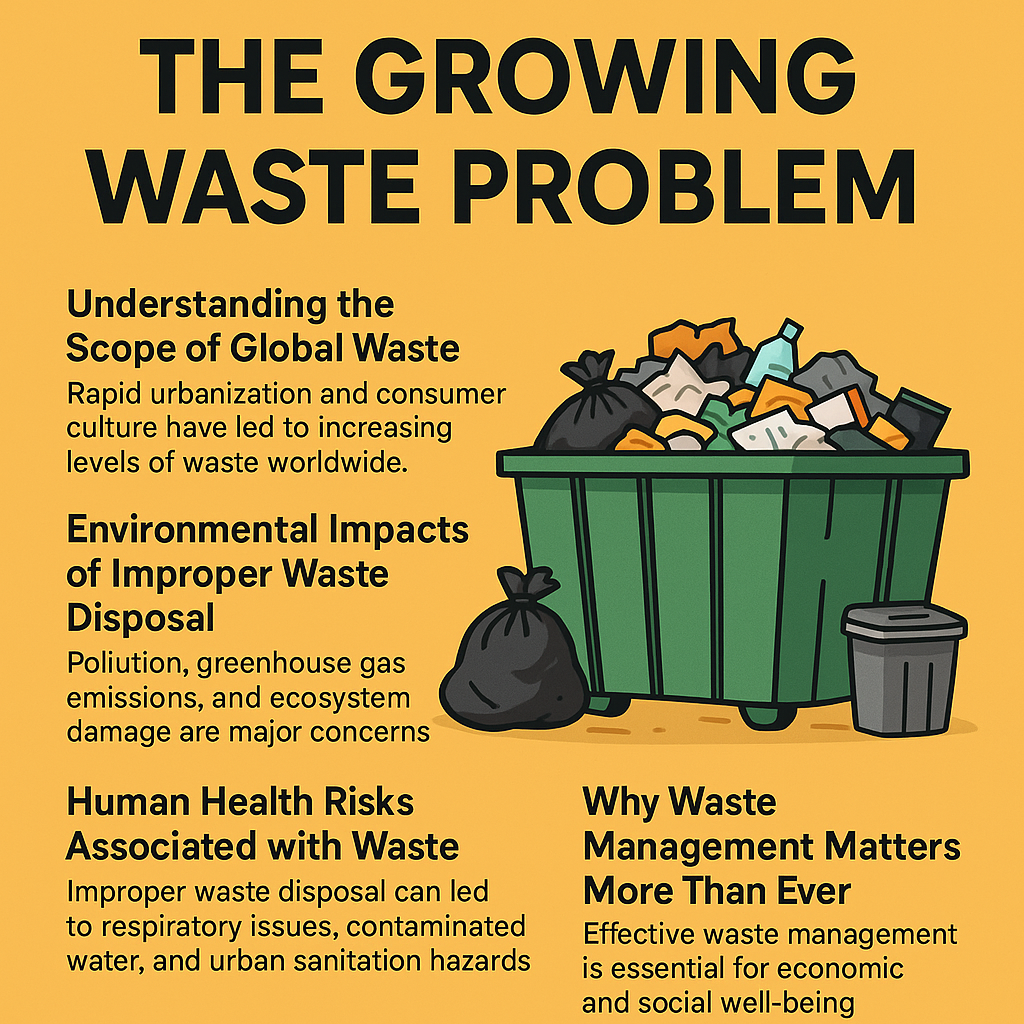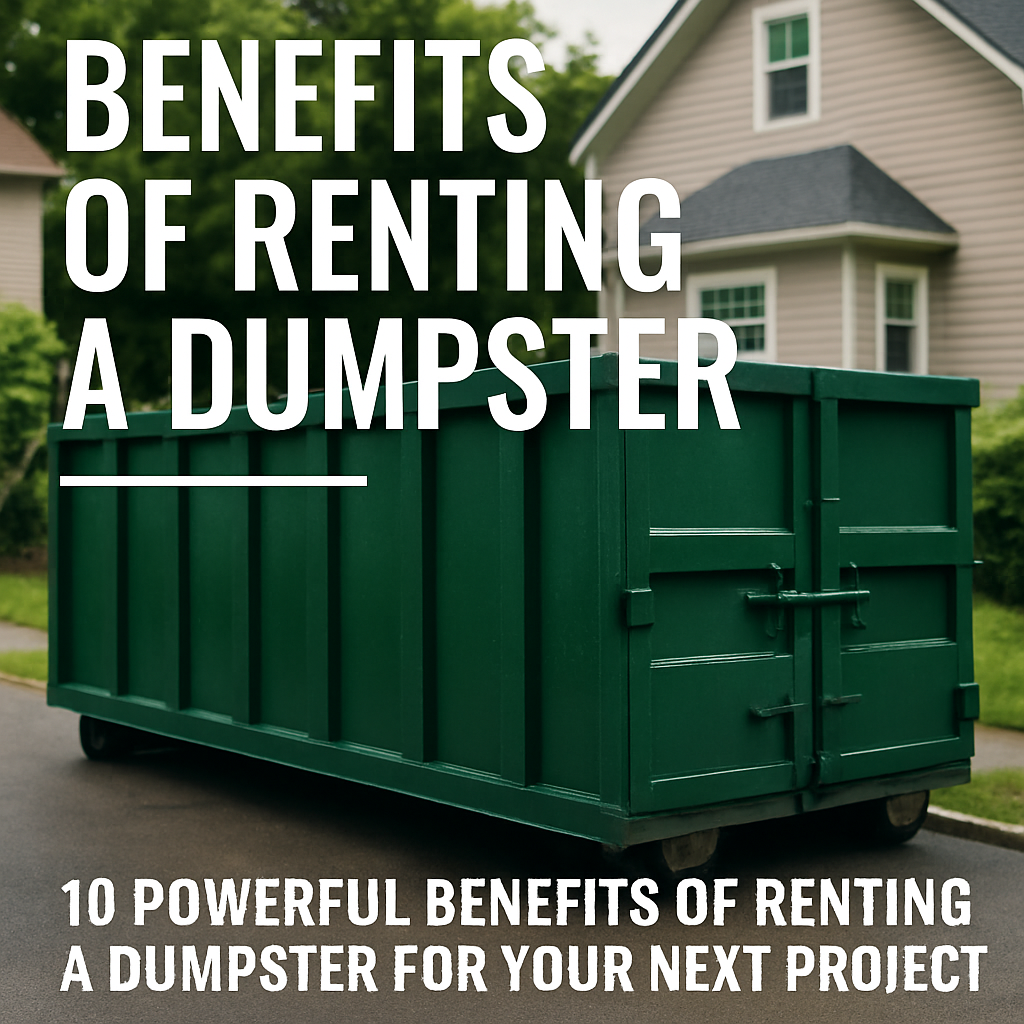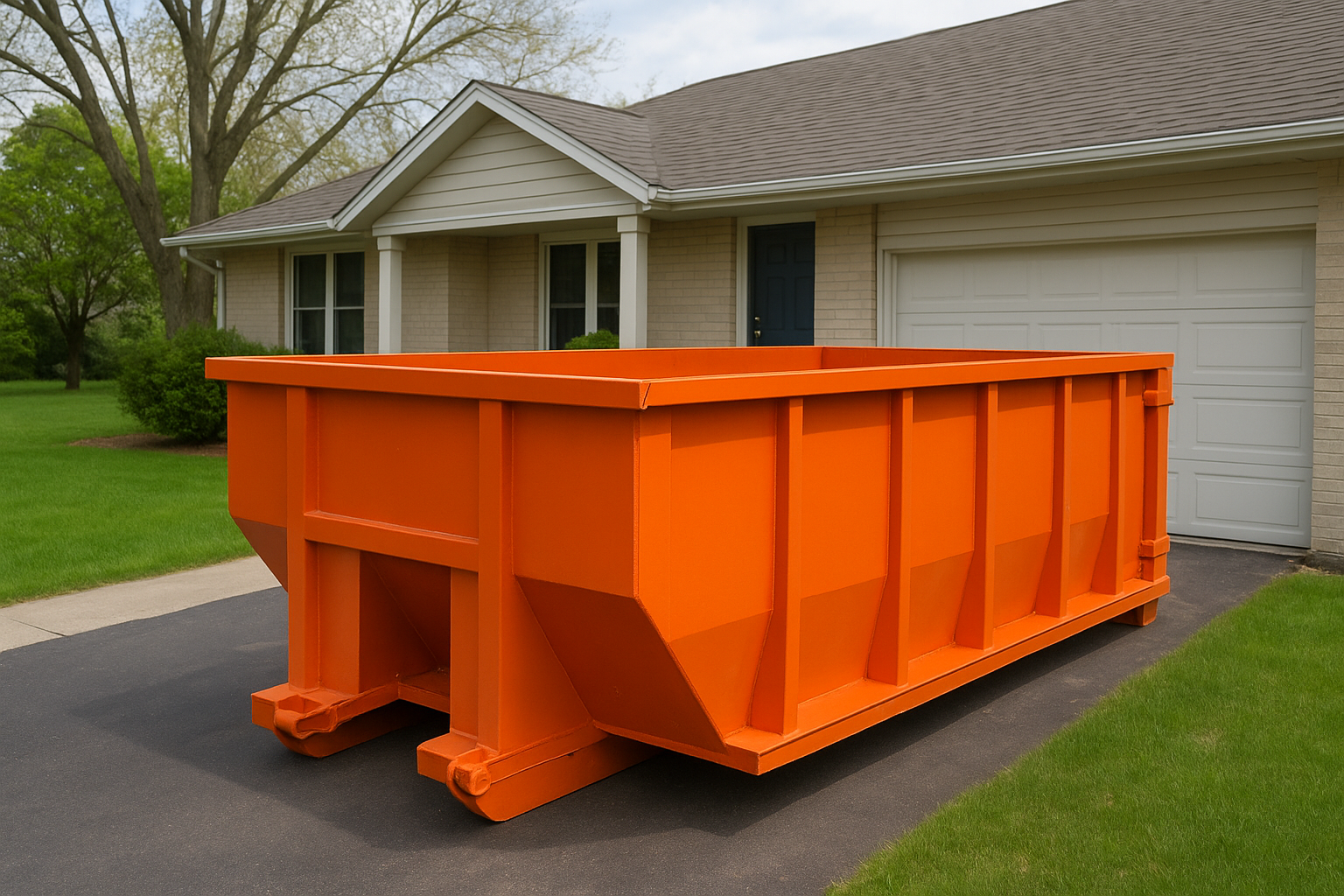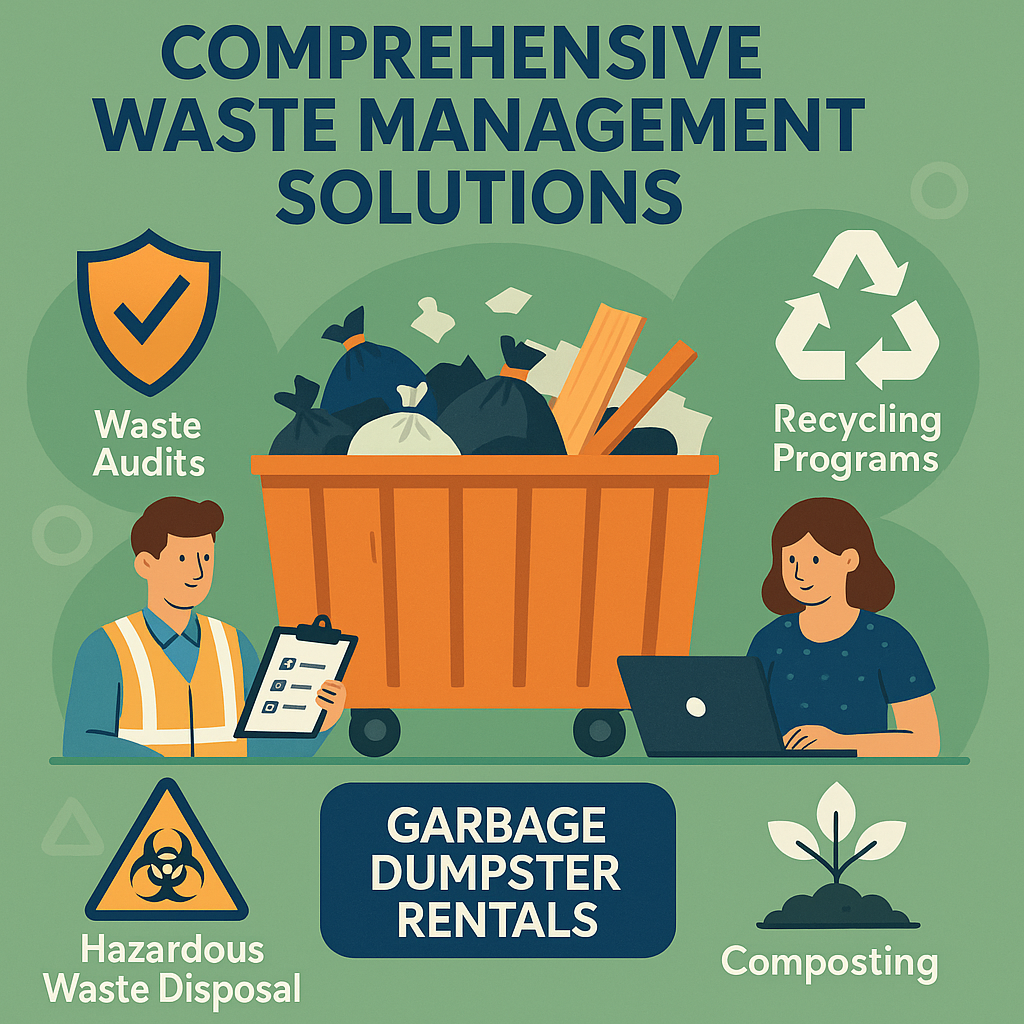
Waste—it’s something we all create every single day, often without giving it a second thought. But what happens when all that trash starts piling up faster than we can manage it? The growing waste problem is not just about landfills or overflowing trash cans; it’s about our environment, our health, and our future. In this guide, we’ll break down why this issue is spiraling out of control and how responsible solutions like waste management roll off services and dumpster rental options can help us turn the tide.
Understanding the Scope of Global Waste
How Much Waste Do We Generate Daily?
Each day, the world generates about 2 billion tons of municipal solid waste, according to the World Bank. In the U.S. alone, every person produces nearly 4.5 pounds of trash per day. That may not seem like much, but multiplied by millions of people over a year—it becomes a mountain of waste.
Key Contributors to the Waste Crisis
The biggest offenders? Packaging materials, fast fashion, electronics, and single-use plastics. While technology advances, our waste management systems often lag behind. Rapid urbanization and consumer culture have pushed us to generate more waste than ever before.
Environmental Impacts of Improper Waste Disposal
Pollution of Land and Water
Trash that’s improperly disposed of often ends up in rivers, oceans, and even underground water sources. This affects not just the environment but also drinking water supplies and agriculture.
Greenhouse Gas Emissions and Climate Change
Organic waste that ends up in landfills releases methane, a potent greenhouse gas. This contributes heavily to climate change, making waste management a critical piece of the climate puzzle.
Wildlife and Ecosystem Destruction
Birds, fish, and land animals often mistake waste for food or get trapped in it. Plastic bags, bottle caps, and fishing lines are found in the stomachs of animals across the world.
Human Health Risks Associated with Waste
Airborne Toxins and Respiratory Issues
Burning trash in open areas releases harmful chemicals like dioxins and furans. These pollutants have been linked to asthma, lung diseases, and even cancer.
Groundwater Contamination
Leachate—a toxic liquid that seeps out of landfills—can contaminate underground water reserves. This poses long-term health risks to communities relying on well water.
Urban Sanitation Hazards
Improper waste disposal in urban areas often leads to clogged drains and the spread of diseases like dengue, cholera, and typhoid.
Why Waste Management Matters More Than Ever
Economic Costs of Inaction
Cities spend millions cleaning up illegal dumps, fixing drainage systems, and dealing with public health issues related to waste. Prevention through proper systems is far cheaper.
Social Responsibility and Community Impact
Waste management isn’t just a government issue—it’s a community one. Every decision we make at home or work contributes to the solution—or the problem.
Challenges in Current Waste Disposal Methods
Overflowing Landfills
Many landfills have already reached their capacity. Without better waste management strategies, we’re running out of places to safely dispose of our trash.
Lack of Infrastructure in Rural and Urban Areas
Remote areas often lack access to reliable waste disposal services. Even in cities, aging infrastructure and underfunded systems can’t handle the volume of waste.
Illegal Dumping and Open Burning
When disposal options are limited, people resort to dumping waste in open areas or burning it—both of which are environmentally damaging and dangerous.
Understanding Waste Management Roll Off Systems
What Is a Roll Off Dumpster?
A roll off dumpster is a large rectangular container delivered to your location by a special truck. It’s designed to handle everything from home renovation debris to large commercial waste.
How It Works in Practice
You fill it up, and when you’re done, the waste management company comes and takes it away. Simple. Efficient. Reliable. And a great way to avoid clutter or mess during major projects.
Benefits of Waste Management Roll Off Rentals
Flexibility and Convenience
You can rent a dumpster{:rel=“nofollow noopener”} for a day, a week, or even longer, depending on your needs. Whether it’s spring cleaning or a full demolition project, there’s a solution for you.
Safe and Efficient Waste Removal
By keeping waste in a secured container, you reduce the risk of accidents, injuries, and environmental contamination.
Cost-Effective for Projects of All Sizes
Contrary to popular belief, dumpster rental isn’t just for construction giants. Homeowners and small business owners benefit just as much.
Dumpster Rental: An Everyday Solution
When You Should Rent a Dumpster
Dumpster rentals are ideal for more than just construction. If you’re moving, cleaning out your garage, tackling a landscaping job, or renovating your kitchen, a dumpster makes waste management easy. Rather than making countless trips to the dump, a dumpster sits conveniently on-site.
Residential, Commercial, and Construction Use Cases
-
Residential: Ideal for decluttering, moving out, or doing a deep home clean.
-
Commercial: Restaurants, retail stores, and office buildings use roll off dumpsters for consistent waste disposal.
-
Construction: From roofing to major renovations, dumpster rental services help manage debris professionally.
How to Choose the Right Dumpster Rental
Sizing Guidelines
Picking the right size is crucial. Too small, and you’ll need extra pickups. Too large, and you’ll overspend. Common sizes include:
| Dumpster Size | Ideal For |
|---|---|
| 10 Yard | Small cleanouts, yard debris |
| 20 Yard | Mid-sized renovations |
| 30 Yard | Construction projects |
| 40 Yard | Demolitions and large-scale projects |
What Can and Can’t Go in a Dumpster
Allowed: Furniture, wood, drywall, yard waste, household junk
Not Allowed: Paints, oils, hazardous chemicals, batteries, tires, and electronics (check local rules)
Local Regulations and Permits
Some cities require permits if a dumpster sits on the street. Your waste management roll off rental company can help navigate local laws and get proper authorization.
The Role of Households in Reducing Waste
Recycling, Composting, and Upcycling
Households can divert tons of waste from landfills by recycling plastics, metals, and paper. Composting food scraps creates natural fertilizer, and upcycling turns old items into new treasures.
Cutting Down on Single-Use Items
Switch from disposable to reusable. Ditch single-use bags, utensils, and water bottles. Small choices add up fast.
Corporate and Industrial Waste Responsibilities
Accountability in Manufacturing
Corporations generate massive waste through production and packaging. More companies are adopting zero-waste initiatives and switching to recyclable or biodegradable materials.
Green Certifications and Waste Audits
Businesses that conduct waste audits and earn eco-certifications not only improve the environment—they also boost customer trust and loyalty.
Government Policies and Global Waste Strategies
Local Recycling Laws
Cities are introducing stricter recycling mandates, encouraging composting, and banning single-use plastics to cut down waste streams.
International Efforts and the Circular Economy
The EU’s “Circular Economy Action Plan” promotes reusing, repairing, and recycling materials. Countries like Sweden and Japan are leading the way in global waste reduction.
Myths About Dumpster Rental and Waste Management Roll Offs
Too Expensive?
Dumpster rentals are more affordable than multiple dump runs. Plus, many companies offer flexible pricing options.
Only for Big Projects?
Wrong! You can rent a dumpster{:rel=“nofollow noopener”} for small home projects, garage cleanouts, or garden work.
Harmful to the Environment?
Properly managed roll off dumpsters protect the environment{:rel=“nofollow noopener”} by reducing illegal dumping and promoting recycling.
The Link Between Consumer Habits and the Waste Problem
Fast Fashion and E-Waste
Trendy clothes worn once and tossed, and electronics replaced yearly, create huge waste piles. Repairing, donating, or recycling these items reduces environmental harm.
The Problem with Overpackaging
Many products are overwrapped with plastics, contributing to daily household trash. Supporting brands that use minimal, recyclable packaging makes a big impact.
Educational Efforts to Raise Awareness
Schools, Social Media, and Public Campaigns
Education is key. From school recycling programs to viral online challenges, spreading awareness helps shape responsible behaviors from a young age.
Future Innovations in Waste Management
AI Sorting Systems
Artificial intelligence can now detect, sort, and route different types of waste for better recycling results.
Biodegradable Waste Technologies
Researchers are developing packaging and products that naturally decompose in days or weeks instead of centuries.
FAQs About Waste Management Roll Offs and Dumpster Rental
What is a roll off dumpster?
A roll off dumpster is a large waste container delivered to your property that can be loaded with trash and removed when full.
How much does a dumpster rental cost?
Costs vary by size, duration, and location. Expect $300–$600 on average. Some providers offer flat rates.
Can I rent a dumpster for a weekend?
Yes! Many companies offer weekend or short-term rentals perfect for quick cleanouts.
What’s not allowed in a rented dumpster?
Hazardous materials, electronics, batteries, and certain liquids. Always check with your rental provider.
How do I schedule a waste management roll off rental?
Call or book online with your local waste management provider. Choose your size and delivery date, and they’ll handle the rest.
Is roll off rental eco-friendly?
Yes—when used responsibly. It reduces illegal dumping and can help improve recycling rates when sorted correctly.
Conclusion: Everyone Has a Role in Solving the Growing Waste Problem
Final Thoughts
The growing waste problem isn’t going away on its own. But with awareness, smarter choices, and responsible solutions like waste management roll off rental, we can tackle the challenge head-on.
How You Can Get Involved Today
-
Rent a dumpster for your next cleanup project.
-
Sort your trash, compost, and recycle whenever possible.
-
Support businesses and leaders prioritizing sustainable waste practices.
Every step matters—because every piece of waste has a place, and it’s not in our oceans or streets.



